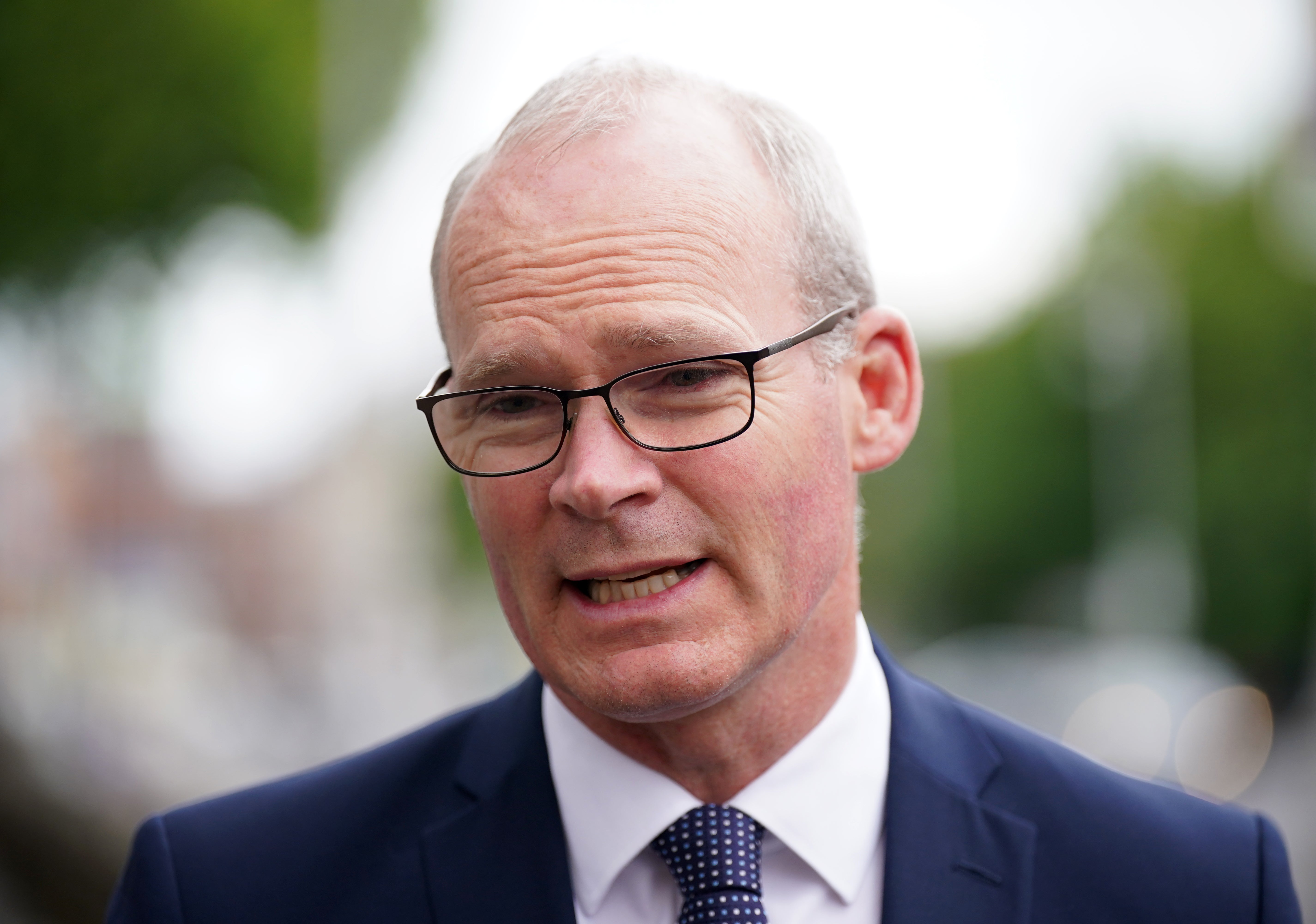Partnership not provocation needed for NI Protocol negotiations, warns Coveney
The Ireland foreign minister was addressing the Parliamentary Assembly of the Council of Europe in Strasbourg.

Your support helps us to tell the story
From reproductive rights to climate change to Big Tech, The Independent is on the ground when the story is developing. Whether it's investigating the financials of Elon Musk's pro-Trump PAC or producing our latest documentary, 'The A Word', which shines a light on the American women fighting for reproductive rights, we know how important it is to parse out the facts from the messaging.
At such a critical moment in US history, we need reporters on the ground. Your donation allows us to keep sending journalists to speak to both sides of the story.
The Independent is trusted by Americans across the entire political spectrum. And unlike many other quality news outlets, we choose not to lock Americans out of our reporting and analysis with paywalls. We believe quality journalism should be available to everyone, paid for by those who can afford it.
Your support makes all the difference.The relationship between the UK and Irish governments must go back to being one of “partnership as opposed to provocation”, Ireland’s foreign minister has urged.
Simon Coveney warned of a “very difficult space” if negotiations around issues with the Northern Ireland Protocol were not resolved.
Last week, the British Government tabled a Bill at Westminster that would empower ministers to override much of the contentious post-Brexit trading regime it had agreed with the EU in the withdrawal talks.
Addressing the Parliamentary Assembly of the Council of Europe in Strasbourg, Mr Coveney said this approach would cause more problems than it would solve.
He said: “The way not to proceed is for the British Government to continue on the road that it is currently travelling on which is to unilaterally introduce legislation to disapply international law.
“I think that is going to cause a lot more problems than it solves.”
His comments came as his UK counterpart, Liz Truss, said legislation relating to the protocol was “both necessary and lawful”, warning “we simply can’t allow the situation to drift”.
Ms Truss, UK Foreign Secretary, told MPs in London on Tuesday “we remain open to negotiations with the EU”, but added “in the absence of the EU being willing to change the protocol, we are pressing ahead with legislation”.
The peace process on the island of Ireland has always worked best when the British and Irish governments worked together
Mr Coveney described outstanding issues as “absolutely resolvable” if both parties came to the negotiating table in the spirit of partnership and friendship, but indicated this was not currently the case.
He said: “We need the British Government as a partner and at the moment we don’t have that if I’m honest.
“So the peace process on the island of Ireland has always worked best when the British and Irish governments worked together. We’re willing to compromise and provide a platform for both dialogue and compromise for the political parties in Northern Ireland, which have a deeply divisive past.
“And we need to get back to that space of partnership as opposed to provocation, which unfortunately is the space we’re in right now.”
Mr Coveney said Ireland had recently been ranked the world’s third most peaceful country by the Global Peace Index and that this showed how well the Good Friday Agreement had worked for the whole island.
Our preference is a negotiated solution, but in the absence of the EU being willing to change the protocol, we are pressing ahead with legislation
He added: “We dare not imperil it, which is why we have reacted with such concern at the unilateral actions and legislation of the UK Government in recent weeks.”
Ms Truss told the House of Commons: “We have been clear with the EU that the Northern Ireland Protocol needs to change in order to uphold the Belfast Good Friday Agreement, ensure that we have free flow of goods from east to west and also protect the north-south relationship.
“Our preference is a negotiated solution, but in the absence of the EU being willing to change the protocol, we are pressing ahead with legislation.”
The DUP has blocked the establishment of a new ministerial executive following last month’s Assembly election in protest at the protocol, which has created economic barriers between Northern Ireland and the rest of the UK.
Sinn Fein vice president Michelle O’Neill, who would be in line to become the party’s first first minister if an executive was restored, said the DUP’s block on powersharing was “unfathomable” given the pressures facing families in the region.